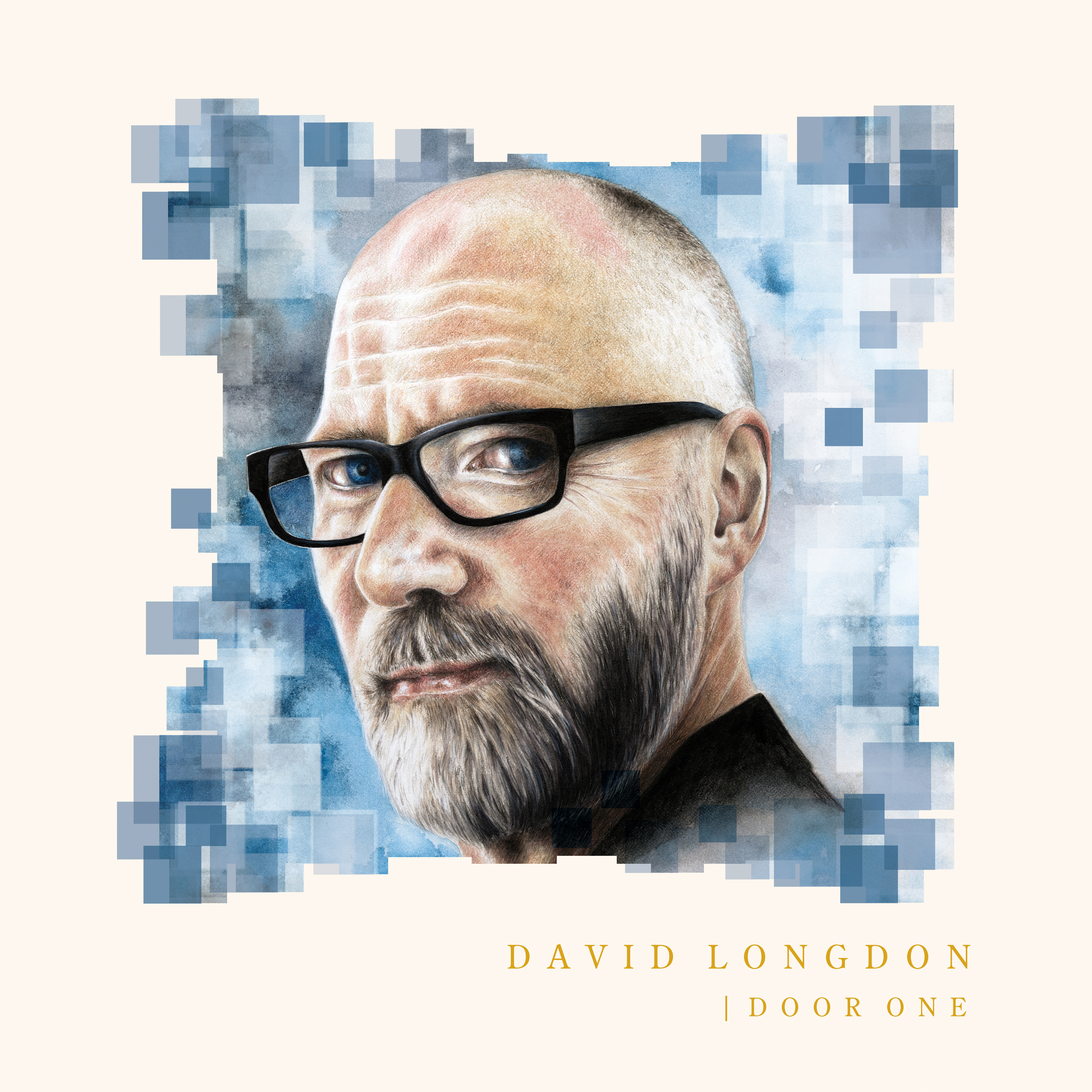“I like the idea of doors,” David Longdon told this writer in 2020, when this solo album was in its embryonic stage. “The doors of perception – the Aldous Huxley thing. Door One is actually a wooded area with grass and a hill where I’d meet my mates [in his Nottingham hometown], I’ve no idea why it’s called that. But I also like the idea of calling the album Door One, because, as it’s numbered, that implies there are other doors.”
Making Dyble Longdon’s acclaimed 2020 record Between A Breath And A Breath had been a step away from Big Big Train, the band that made his name. Longdon had full control, and he liked it. He contended it was “the best thing I’ve done as a piece of music so far. I finally got to show what I’m capable of doing.”
It’s a high bar, but that album is the closest relative of Door One, his second solo release after 2004’s Wild River. Like Dyble Longdon, this was made under the auspices of BBT’s English Electric label. Gregory Spawton supplies some gorgeous 12-string guitar parts, but he’s very much a guest on a David Longdon record. Taking on much of the performance duties himself, Longdon selected a fresh set of exceptional musicians, including drummer Jeremy Stacey (King Crimson), bassist Steve Vantsis (Fish), Violaine keyboardist Hazel Mills (touring player for Florence + The Machine), guitarist Stuart McCallum (The Cinematic Orchestra) and old friend Gary Bromham on textural guitar and much else. Trusted co-producer/engineer Patrick Phillips oversaw the album’s completion after Longdon’s untimely death in November 2021.
Inevitably the record arrives in the shadow of that tragedy, but to view it solely in that context would do its creator a disservice. Especially because – as Longdon looks back on doors opened, paths chosen, and where those choices have led – this personal, emotional and frequently sublime record simply vibrates with life, and living. Birdsong, echoing piano and a building cinematic atmosphere characterise instrumental prelude Into The Icehouse, an Eno-esque mood-setter that, in a kinder world, might have served well as intro music to a live show. Watch It Burn’s low piano line, new wave guitar riff and great Stacey/Vantsis groove power along as Longdon revisits a toxic relationship with an alcohol-dependent ex-lover. It’s clever, anthemic and pretty indie-rock, with a spine-tingling apex line, where he sings: ‘Take
a match, strike and ignite.’
Numerous other doors lead to doomed romances too. The brooding, piano-driven waltz Forgive (But Not Forget) looks back at one (‘Our fate perhaps, or were we just ill-matched’), with a grand, expressive guitar solo and overwrought rhythmic variations adding to the drama. The big, lush strings for Sangfroid were recorded at Abbey Road during a BBT session. Along with the John Barry orchestral trappings, this irresistible slice of art-pop has an earworm three-chord central hook, and another eye-watering vocal climax.
Catchier still is There’s No Ghost Like An Old Ghost, a consideration of past regrets, secrets and lies (‘The loose ends you’d left unaddressed’) and their nasty habit of resurfacing later in life, ‘with bones to pick and an axe to grind’. The mandolin and melody line give a folky lilt, the guitar solo and Wurlitzer organ are bluesy, and Theo Travis’ smokey sax outro is pure class (as a steer Longdon’s pointed Travis to Dick Parry’s work on one of his favourite albums, The Dark Side Of The Moon).
A reflection on his craft, The Singer And The Song must be at the very least partially autobiographical. It’s vaudeville, with a show tune chorus (‘The stage lights burning so brightly as I stand completely immersed in the song […] I breathe life into the soul of it’), but it’s certainly not naff. It’s more in the Scott Walker/Bowie vein. And with some nifty bass from Vantsis, Longdon really sells it. As he does the moody and enigmatic 10-minuter The Letting Go. The cathartic lyrical arc here draws on some liberating hypnotherapy sessions Longdon had to treat his fear of flying, set to a strident, proggy, beautifully paced musical backdrop. Travis really goes for it again here, with squalls of soprano, tenor and baritone sax as the song drives to a momentous close. After that tumult, closer Love Is All is all the more affecting for its directness and simplicity.
And perhaps here it’s hardest to separate Door One – with all its heart, soul, love, vitriol, humour and wisdom – from its sad, posthumous circumstances. With that husky, timeless tone of his, David Longdon appeals to us to heed the words: ‘Love is the only thing that matters, Love is all, love is all.’
In this context, it’s so powerful, so poignant. Ultimately, he couldn’t have offered a more meaningful, more human valediction. Essential listening and a truly mesmerising posthumous release.


